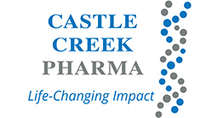Knowledge exchange & partnership
Partnering with industry
One of EB Resnet’s main goals is to build bridges between patient advocacy groups, academic and clinical researchers and the biopharma and health technology industries to drive research outcomes into patient benefit.
To bridge the gap between fundamental research and clinical trials we need partners with expertise and experience. Several decades of research support by EB Resnet members have effectively created resources that significantly de-risk future partner research & development investment.
A strong foundation for collaborative programs
Research into the causes and consequences of EB started around 40 years ago, largely as a result of the patient organisation DEBRA UK supporting the first research projects in the early 1980s. This support created much of the basic knowledge of EB at a time when there was little interest in a rare, relatively unknown condition, leading to early diagnostics and the beginning of a dedicated EB research community.
The scale of research has expanded, from project budgets of only tens of thousands of euros in the 1980s to budgets of over 1 million euros: to date, investment by the research-active national DEBRAs among the 55-plus members of DEBRA International totals more than 60 million euros. More recently, other patient organisations have also started to support EB research and clinical translation.
The breadth and depth of the established knowledge of EB biology, together with networks of clinical excellence such as EB-CLINET, national and international patient databases (i.e. ERN), documentation of the disease natural history of the disease (i.e. PEBLES), and the development of disease markers and validation of clinical endpoints provide a strong foundation upon which collaborative programs can bring therapies to the clinical trial stage.
EB-ResNet encourages dialogue with companies considering the development of clinical trials to ensure that protocols address constraints on patient enrolment. Within the past decade, diverse technologies aimed at curative therapies addressing the underlying genetic defects for all EB types, as well as symptom-relief treatments, have progressed from laboratory to early-stage clinical trials.
Experience to date has shown that some companies do not consider the impact of the disease on patient participation in clinical trials in sufficient depth, or early enough. This has, in some cases, led to non-compliance or patients withdrawing from trials, with the consequent failure of the trials.
Industry Partnering Panel - IPP
EB Resnet has set up an Industry Partnering Panel (IPP) to help the industry address these and other pre-competitive issues in EB R&D.
A first meeting of the IPP was held at EB2017, and several hurdles that need to be overcome were identified, notably:
- Access to patients and clinician time;
- Better understanding of the complexity of EB as a group of distinct conditions with diverse etiology;
- The difficulty of correlating clinically relevant endpoints with regulatory requirements.
Proposals for a collaborative approach to address these key pre-competitive issues are now in development. Interested in participating? Let us know.








